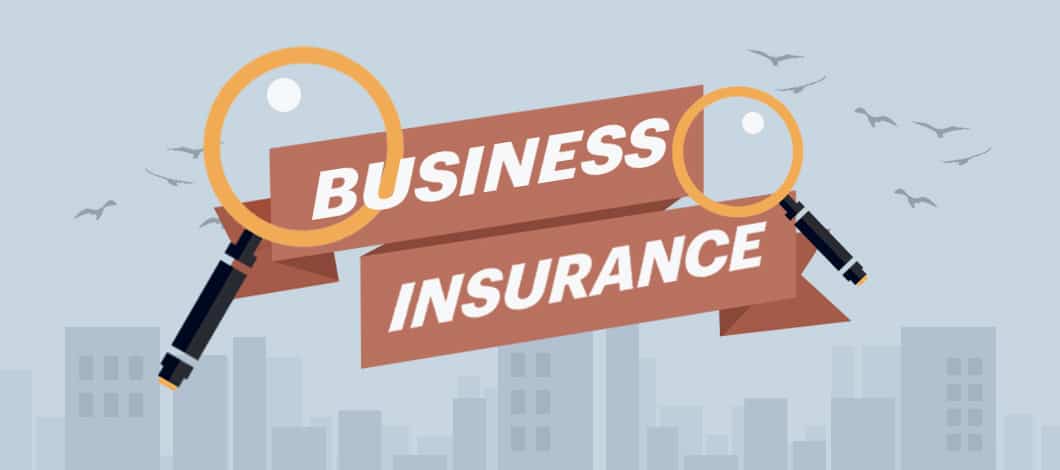Whether you're running a small startup or an established enterprise, obtaining business insurance is essential for protecting your company against financial risks. Business insurance quotes allow you to compare coverage options and find the most affordable and suitable plans for your needs.
In this article, we’ll guide you through the process of obtaining business insurance quotes, discuss the types of coverage you may need, and provide helpful tips to ensure you're getting the best deal.

Table of Contents:
- Why Do You Need Business Insurance?
- Types of Business Insurance Coverage
- How to Get Business Insurance Quotes
- Factors That Influence Business Insurance Rates
- Tips for Saving on Business Insurance
- Common Business Insurance Myths
- Frequently Asked Questions (FAQs)
- Conclusion
1. Why Do You Need Business Insurance?
Business insurance is designed to protect your company from unexpected financial losses caused by events like accidents, natural disasters, lawsuits, or employee injuries. Without the right coverage, your business could face significant financial challenges that might even jeopardize its future.
Key Reasons for Business Insurance:
- Liability Protection: Safeguards your business from lawsuits or claims made by clients or third parties.
- Property Damage Coverage: Protects your physical assets, including buildings, equipment, and inventory, from damage or loss.
- Employee Protection: Workers' compensation and other insurance types help protect your employees and the business from the costs associated with workplace injuries.
- Business Continuity: Covers lost income if your business is interrupted due to a covered event.
2. Types of Business Insurance Coverage
Business insurance comes in various forms, depending on the nature of your company. Here are some of the key types of coverage that business owners should consider:
a. General Liability Insurance
General liability insurance covers claims of property damage, bodily injury, or negligence that occur during business operations. It's one of the most common types of insurance for businesses of all sizes.
b. Property Insurance
Property insurance protects your physical assets, such as buildings, equipment, and inventory, in case of damage due to fire, theft, vandalism, or natural disasters.
c. Business Interruption Insurance
This coverage protects your business income if your company is unable to operate due to damage to your premises or equipment.
d. Professional Liability Insurance
Also known as errors and omissions insurance, this protects businesses that provide professional services from lawsuits claiming negligence, errors, or omissions in the services provided.
e. Workers' Compensation Insurance
Workers' compensation insurance provides benefits to employees who are injured or become ill as a result of their job. It covers medical expenses, lost wages, and rehabilitation costs.
3. How to Get Business Insurance Quotes
To get business insurance quotes, follow these steps:
a. Determine Your Coverage Needs
Before requesting quotes, assess your business’s risks and determine what types of coverage are most suitable. Consider your industry, the size of your company, and whether you have employees.
b. Get Quotes from Multiple Providers
Obtain quotes from at least three different insurance providers to compare prices and coverage options. Use online comparison tools like Insureon or Hiscox to streamline this process.
c. Work with an Insurance Broker
If you're unsure about which policies you need, consider working with an independent insurance broker. Brokers can help you find the right policies and ensure you're getting the best deal.
d. Review Your Quotes and Policy Details
Once you receive quotes, carefully review the coverage limits, exclusions, and premiums. Choose the quote that best fits your needs and budget.
4. Factors That Influence Business Insurance Rates
Several factors influence business insurance rates, including:
- Industry and Occupation: Businesses in higher-risk industries (e.g., construction, healthcare) often pay higher premiums.
- Business Size: Larger businesses typically have higher premiums because they tend to have more employees and assets.
- Claims History: A business with a history of claims may face higher rates due to its higher risk profile.
- Location: Businesses in areas prone to natural disasters or high crime rates may have higher premiums.
- Employee Count: The number of employees you have can impact rates for workers' compensation and general liability coverage.
5. Tips for Saving on Business Insurance
To reduce the cost of your business insurance, consider these tips:
- Bundle Policies: If you need multiple types of insurance (e.g., general liability and property), consider bundling them with one provider for a discount.
- Increase Your Deductible: Raising your deductible can lower your premium, but make sure you can afford the higher out-of-pocket costs if you need to file a claim.
- Improve Safety Protocols: Investing in safety measures, such as security systems, workplace safety training, and fire prevention, can reduce your premiums over time.
- Maintain a Clean Claims History: The fewer claims you make, the less likely your premiums will increase. Consider self-insuring for small risks to keep claims down.
6. Common Business Insurance Myths
There are several misconceptions about business insurance that can lead to mistakes:
- Myth #1: Small Businesses Don’t Need Insurance
Even small businesses face risks, and without insurance, you could be putting your business at risk of significant financial loss. - Myth #2: General Liability Insurance Is All You Need
While general liability insurance is crucial, many businesses need additional coverage, such as property insurance or professional liability insurance, depending on the type of business. - Myth #3: Business Insurance Is Too Expensive
Business insurance can be affordable, especially if you choose the right coverage and take steps to minimize your risks.
7. Frequently Asked Questions (FAQs)
Q: How much business insurance do I need?
A: The amount of business insurance you need depends on your business size, industry, and specific risks. Start by evaluating the risks you face, and consult with an insurance provider or broker to determine the appropriate coverage.
Q: How can I lower my business insurance premiums?
A: You can lower your premiums by bundling policies, increasing your deductible, improving workplace safety, and maintaining a claims-free record.
8. Conclusion
Obtaining business insurance quotes is a vital step in protecting your company’s assets, employees, and operations. By comparing quotes, understanding your coverage needs, and working with an experienced broker, you can ensure your business is properly protected at an affordable price.
2. Small Business Insurance: Essential Coverage for Entrepreneurs
Small business insurance is crucial for protecting your business against unexpected risks and financial setbacks. Whether you’re just starting or looking to expand, understanding the types of coverage your small business needs will help you safeguard your investment and operate with confidence.
3. Commercial General Liability Insurance: What You Need to Know
Commercial General Liability (CGL) insurance is one of the most important policies for business owners. It helps protect your business from third-party claims of bodily injury, property damage, and advertising or personal injury. Understanding CGL insurance and how it applies to your business can prevent costly legal expenses and reputational damage.
4. Workers' Compensation Insurance: Protecting Your Employees and Your Business
Workers' compensation insurance is mandatory in most states and provides essential protection for businesses with employees. This insurance covers medical costs, lost wages, and rehabilitation for workers injured on the job. It also protects your business from lawsuits related to workplace injuries.
5. Business Insurance for Startups: Tailored Coverage for New Ventures
For startups, securing the right business insurance is critical to ensuring the longevity and success of your business. From liability coverage to property protection, this article will discuss the types of business insurance startups should consider and how to find affordable, comprehensive coverage.
6. Travel Insurance: Why It’s Essential for Business and Leisure Travelers
Whether you're traveling for business or leisure, travel insurance can provide peace of mind by covering unexpected events such as trip cancellations, medical emergencies, lost luggage, and more. In this article, we’ll explore the importance of travel insurance and help you choose the best plan for your needs.




